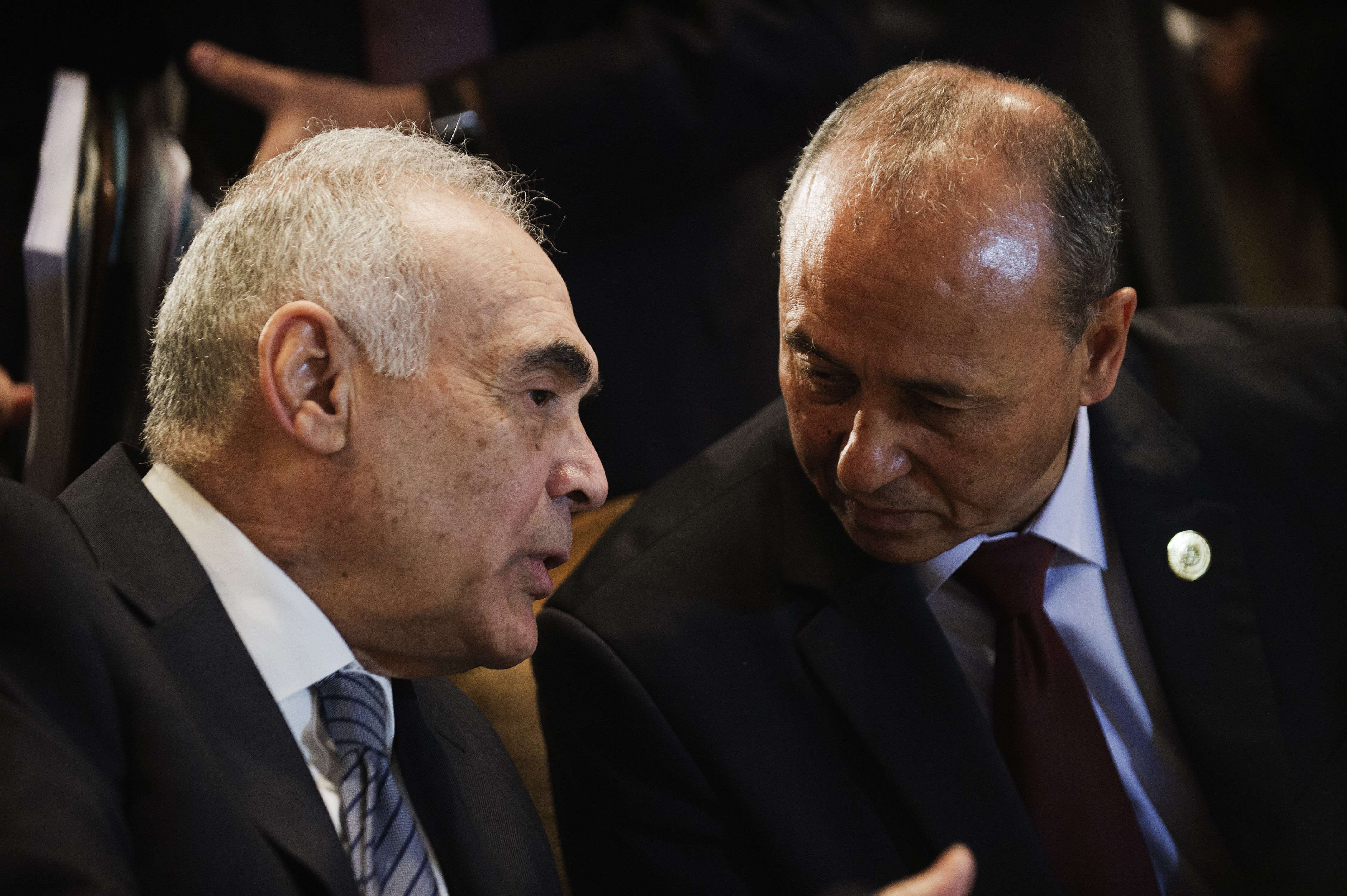Arab Chiefs-of-Staff gathered Wednesday in the Arab League’s Cairo headquarters to discuss the implementation of a decision to form a joint Arab force.
Egypt’s Chief-of-Staff Mahmoud Hegazy headed the meeting as Egypt hosted this year’s summit in late March.
The meeting tackled the operational procedures, budget, composition and mechanisms of action required to create a joint Arab force. It was attended by Chiefs-of-Staff of 18 Arab countries, except for Algeria, the Comoros, Yemen and Syria, which was suspended from attending Arab league meetings since 2012 owing to the inability of its government to stop the bloodshed in Syria.
The results of the meeting will be presented to Arab leaders by a committee which includes Egypt, Kuwait, which hosted last year’s summit, and Morocco, as it will host the coming year’s summit, within four months.
The Arab League’s 26th session concluded with a preliminary agreement to establish a military force under the supervision of a high-level team of Chiefs-of-Staff from the region’s armed forces. The joint Arab force aims to tackle the challenges facing Arab nations to maintain the security of the region.
Hegazy stressed during the meeting that the joint force is not directed against anyone, and aims “to combat terrorism”.
Since the Arab Spring revolutions which have swept the region, several Arab countries including Libya, Syria and Yemen, among others, witnessed a deterioration in security. This came with the rise of Islamists and militias, including the Islamic State (IS) and their affiliates.
However, joining the Arab force is “optional” for Arab countries, Secretary-General of the Arab League Nabil El-Araby previously said. He added that the force aims to face “the unprecedented threats” before the Arab nations.
Within days of the summit, Hegazy headed to Saudi Arabia to attend a meeting with his counterparts from different Arab countries to activate the Arab defence initiative on the Arab league.
Prior to the summit, Saudi Arabia launched airstrikes on Yemen against Houthi rebels who took control of the Yemini capital Sana’a. The decision was backed by Gulf Cooperation Council (GCC) countries and Egypt untill Houthis “back off and legitimacy is restored” to Yemini President Abdel Rabbuh Mansour Hadi.

